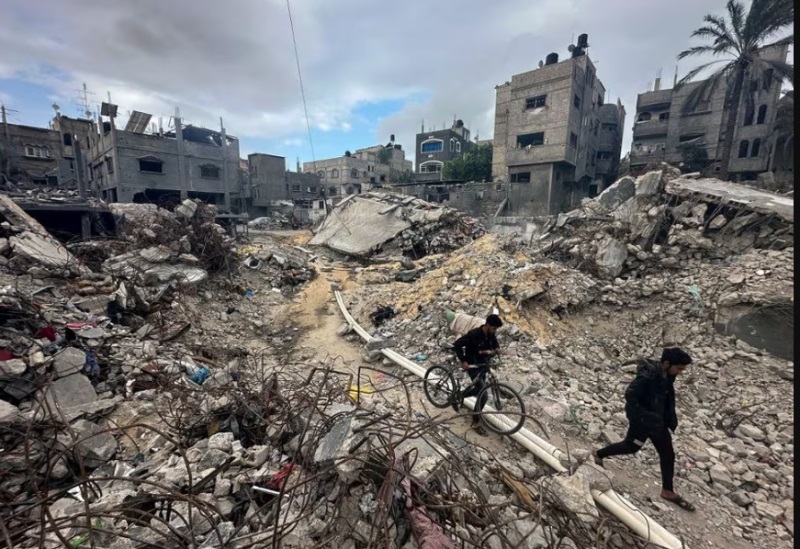Fifth day of truce Israel, Hamas agreement seems only a matter of time before war resumes
| Date :29-Nov-2023 |

TEL AVIV :
A TRUCE between Israel and Hamas entered its fifth day on Tuesday, with the militant group promising to release more civilian hostages to delay the expected resumption of the war and Israel under growing pressure to spare Palestinian civilians when the fighting resumes.
The sides agreed to extend their truce through Wednesday, with another two planned exchanges of militant-held hostages for Palestinians imprisoned by Israel. But Israel has repeatedly vowed to resume the war with “full force” to destroy Hamas once it’s clear that no more hostages will be freed under the current agreement’s terms.
US Secretary of State Antony Blinken is set to visit the region later this week for the third time since the start of the war, and is expected to press for an extension of the truce and the release of more hostages.
The State Department said he would also discuss efforts to “protect civilian life during Israel’s operations in Gaza” and accelerate the delivery of aid to the impoverished coastal strip. Israel’s top ally has pledged unwavering support for its Gaza offensive, but Blinken has also said “far too many” Palestinians have been killed.
UN Secretary-General Antonio Guterres reiterated his call for a long-term cease-fire and the release of all hostages
in a statement on Monday, reflecting broad international support for a cessation of hostilities. Hamas and other militants are still holding about 160 people, out of the 240 seized in their October 7 assault into southern Israel that ignited the war.
That’s enough to potentially extend the truce for another two weeks under the existing framework brokered by the Qatar, Egypt and the US, but Hamas is expected to make much higher demands for the release of captive soldiers.
Either way, Israel says it is committed to resuming the war, which is already the deadliest round of Israeli-Palestinian violence in decades. It blames the soaring casualty toll on Hamas, accusing the militants of using civilians as human shields while operating in dense, residential areas.
Israel has vowed to end Hamas’ 16-year rule in Gaza and crush its military capabilities. That would almost certainly require expanding the ground offensive from northern Gaza — where entire residential areas have been pounded into rubble — to the south, where hundreds of thousands of displaced people have packed into overflowing United Nations shelters.
Hamas freed another 11 women and children on Monday in the fourth and final swap planned under the initial cease-fire agreement, which went into effect on Friday. Israel released 33 Palestinian prisoners.
Monday’s releases bring to 51 the number of Israelis freed under the truce, along with 19 hostages of other nationalities. So far, 150 Palestinians have been released from Israeli prisons. Israel has said it would extend the cease-fire by one day for every 10 additional hostages released.
The Palestinian prisoners released so far have been mostly teenagers accused of throwing stones and firebombs during confrontations with Israeli forces. Some were convicted by Israeli courts of attempting to carry out deadly attacks. The prisoners are widely seen by Palestinians as heroes resisting occupation.
Most of the freed hostages appeared to be physically well, but an 84-year-old woman released Sunday was hospitalized in critical condition because she had not had access to her medication in captivity. They have mostly stayed out of the public eye, but details of their captivity have started to emerge.
In one of the first interviews with a freed hostage, 78-year-old Ruti Munder told Israel’s Channel 13 television that she was initially fed well in captivity but that conditions worsened as shortages took hold. She said she was kept in a “suffocating” room and slept on plastic chairs with a sheet for nearly 50 days.
Israel imposed a total blockade of Gaza at the start of the war and had only allowed a trickle of humanitarian aid to enter prior to the cease-fire, leading to widespread shortages of food, water, medicine and fuel to power generators amid a territory-wide power blackout.